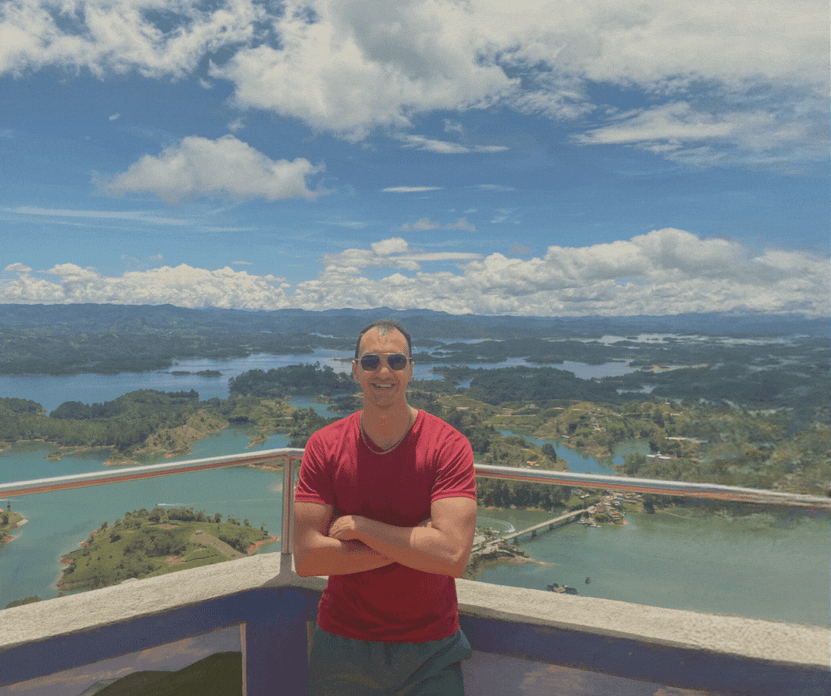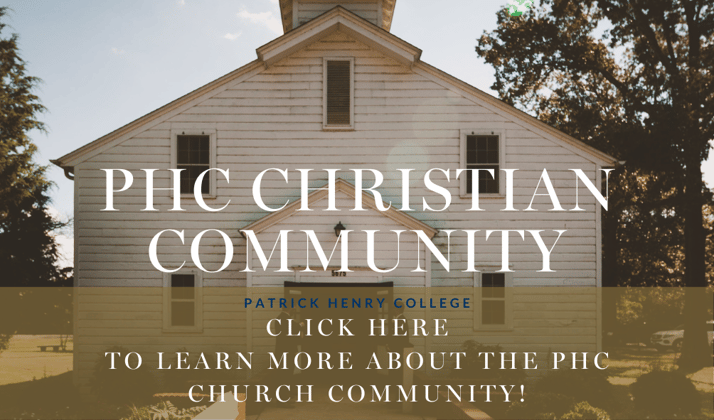
Senior Christian Castro witnessed the impact of Christianity on society during his 5-week trip to Colombia this past summer. “It makes me think about something that Tocqueville says in Democracy in America,” Castro said, referring to a book that PHC students read in the core class Freedoms’ Foundations. “He says ‘Religion is the deepest thing.’ It gives you a sense of order in the universe, and a sense of personal agency.” Tocqueville explains that religion impacts customs, which impact laws. “I really saw that first-hand,” Castro said.
 Castro spent the first five days in Colombia with his dad, visiting places and meeting people his dad knew growing up there. During the following weeks, Castro stayed with several pastors’ families and ministered with them. “I wanted to see what pastoral missions looks like in a foreign context,” he said.
Castro spent the first five days in Colombia with his dad, visiting places and meeting people his dad knew growing up there. During the following weeks, Castro stayed with several pastors’ families and ministered with them. “I wanted to see what pastoral missions looks like in a foreign context,” he said.
Castro noticed a lack of a sense of agency among many Colombians, meaning that people didn’t seem to think they could change their lives. Most people simply grow up and live with their families, not seeking work beyond recycling beer cans or selling baked goods. Castro noted that the unemployment rate in Colombia is 16%. The rampant poverty struck Castro. People had busted off metal parts of sewers and fire hydrants to sell at pawn shops. “That’s not vandalism, that’s just hunger,” Castro thought.
The rampant poverty struck Castro. People had busted off metal parts of sewers and fire hydrants to sell at pawn shops. “That’s not vandalism, that’s just hunger,” Castro thought.
However, he also noticed the joy people gained from living with their families. “Are you lonely?” he would ask people. They didn’t know what he meant. His own family had 30 people living in one house, and neighbors were more family members. “I think that’s why Latin American people are the warmest, most hospitable, friendliest people in the world,” he said. “Everyone is a family or a friend. There’s no sense of being alone.”
Castro said that the people overall seemed happier than Americans. “Money is not going to make them happy, and I think they’ve realized that,” he said. Also, the culture in general is less concerned with national achievements compared to the U.S. While U.S. pride lies in industrial accomplishments, in Colombia, regional identity is wrapped up in dancing. “It’s not a party unless there’s dancing,” he said.
Castro said Americans can learn from the Colombians’ way of life. “I think Americans tend to over-prioritize work. I think we forget family, we forget community, and that’s unhealthy,” he said.  However, this does not negate the need for Christ in Colombia. “I was shocked at how little Christian knowledge they have,” he said. Colombia is largely Catholic. The church holds a lot of power, and it provides education in the country. But Christianity tends not to play a role in people’s daily life. “People don’t have a sense of their personal relationship with God,” Castro said. “I think their understanding of Christianity is that it is for priests and religious people.”
However, this does not negate the need for Christ in Colombia. “I was shocked at how little Christian knowledge they have,” he said. Colombia is largely Catholic. The church holds a lot of power, and it provides education in the country. But Christianity tends not to play a role in people’s daily life. “People don’t have a sense of their personal relationship with God,” Castro said. “I think their understanding of Christianity is that it is for priests and religious people.”
 Castro witnessed Christianity transforming lives when he visited a pro-life church ministry that was run by a pastor he stayed with. The ministry brings pregnant street women to the clinic and offers parenting classes, a place to stay, and a job, on the condition that they attend church every week and listen to a 10-minute Bible presentation every morning. Usually, women resist. However, in the 2 years the ministry has existed, 26 women have agreed.
Castro witnessed Christianity transforming lives when he visited a pro-life church ministry that was run by a pastor he stayed with. The ministry brings pregnant street women to the clinic and offers parenting classes, a place to stay, and a job, on the condition that they attend church every week and listen to a 10-minute Bible presentation every morning. Usually, women resist. However, in the 2 years the ministry has existed, 26 women have agreed.
Once a woman has given birth and developed a profitable skill like sewing, sometimes her boyfriend comes back. When that happens, the ministry includes him in the parenting classes, offers him a job, and encourages the couple to get married. “We are creating a little society, and Christ is the basis of that society,” Castro said.
This is one reason PHC holds an unwavering biblical worldview in all its classes. The Tocqueville quote that Castro referenced is true—religion is the foundational element of a society because it gives people purpose.
Castro said that through the pro-life ministry that he helped in Colombia, “people are regaining their sense of personal agency and living as they were meant to live within the context of a Christian community, and it’s just redeeming their lives."
--
Patrick Henry College exists to glorify God by challenging the status quo in higher education, lifting high both faith and reason within a rigorous academic environment; thereby preserving for posterity the ideals behind the "noble experiment in ordered liberty" that is the foundation of America.

.png?width=800&height=400&name=PHC%20(1).png)


